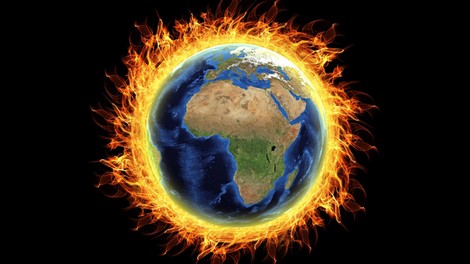Your podcast discovery platform
Curious minds select the most fascinating podcasts from around the world. Discover hand-piqd audio recommendations on your favorite topics.

piqer for: Climate and Environment Global finds Globalization and politics
I'm a freelance journalist, currently based in Madrid. I used to be a News Producer at CNBC in London before, but I thought a little bit more sun might do me good. Now I write for several news organizations, covering a range of topics, from Spanish politics and human rights for Deutsche Welle to climate change for La Marea.
Michael Mann: We Are Even Closer To Climate Disaster Than IPCC Predicts
Last Monday, the world received quite a shock with the Special Report on Global Warming of 1.5ºC, published by the International Panel of experts on Climate Change (IPCC). The UN-funded group of scientists reviewed over 6,000 papers to come up with a historic (and urgent) piece of advice to the world leaders: Take unprecedented action now or face climate chaos.
Reactions have been coming for a week. Large numbers of politicians and business leaders have shown concern and committed to review their climate ambitions, although it remains to be seen if such measures are really put in place. The world at large (except one or two of the usual suspects) has taken the report as what it is: A last-minute warning of impending catastrophe.
Climatologist Michael Mann, however, thinks the IPCC has erred on the side of optimism. A professor at Penn State University, Mann has participated in the elaboration of previous IPCC reports, and is famous for authoring the "Hockey Stick graph", one of the most famous diagrams in the history of climate science.
"...arguably we are actually closer to those 1.5 degrees Celsius and 2.0 Celsius thresholds, temperature thresholds, that are discussed in the report. We’re probably closer to them than the report implies. We probably have less carbon left to burn if we are to avoid crossing those thresholds."
In this 18-minute podcast, professor Mann explains that the report has overlooked the importance of certain feedback loops, such as the melting of the ice sheets of Western Antarctica and Greenland. This, Mann argues, would mean a sea-level rise of several meters in the coming centuries. And that's just at 1.5ºC, which, he repeats, is closer than you'd think.
However, Mann showed some hope at the end of the interview. There is still time to avoid the worst impacts of climate change. The battlefield is the whole planet, from Washington, to Brazil, to Katowice.
To find out more, listen to the podcast, read the transcript, or watch it as a video on Youtube.
